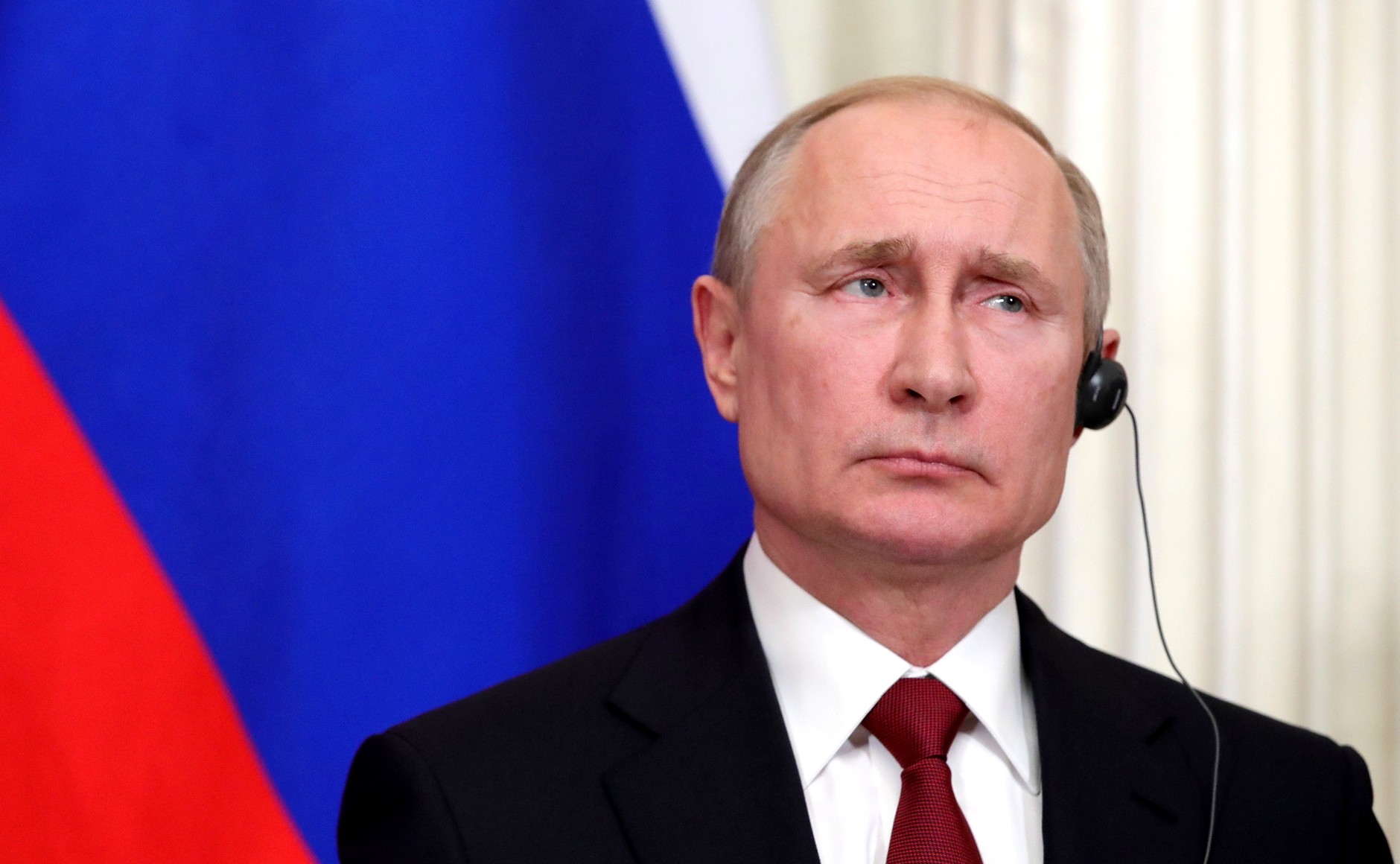The sanctions should be tightened. The decision on imposing them cannot hinge on whether the Russians use, for instance, another type of weapon in Ukraine. They should increase automatically as long as Putin continues the hostilities – says Krzysztof Wojczal, expert on geopolitics in a conversation with BiznesAlert.pl.
BiznesAlert.pl: Since the beginning of the invasion, we have heard about Russia’s logistical problems. What is causing them? Will the sabotage of the bridge over the Kerch Strait make them bigger?
Krzysztof Wojczal: Logistical problems affect and have affected absolutely every army. Sometimes they are small, other times they are big. The question is, what is the threshold of logistics efficiency required to serve a specific army in the performance of specific tasks? In the first phase of the full-scale invasion of Ukraine, the Russian problems stemmed primarily from the mistaken assumption that the conflict would last several days. Therefore, it seems that they accumulated too little stocks for the front-line units to conduct intensive fighting, and at the same time travel the distances they had planned beforehand. For the same reasons, not enough people and equipment were allocated to handle the supply. So, truth be told, they ran out of everything (stocks, rolling stock, people), although we already know that Russia had a really large amount of stocks in its warehouses, for example, of ammunition or fuel. The problem is that these warehouses are sometimes located thousands of kilometers from the front. Effect? The Russian soldiers frequently abandoned their equipment due to shortages in supplies (especially fuel).
The initial scale of the operation was so large that the logistics facilities were not able to serve all directions. In addition, there were staff shortages not only in the logistics system itself, but also in the army. The race to Kyiv made it impossible for the army to man and secure the nodes and communication routes on the way (which was mostly visible in the north-east). On a tactical scale, the Russian columns were completely unprepared in the event of a tough fight on the side of the Ukrainians. Effect? Susceptibility to air or land impacts. Destruction or delay of Russian columns by Ukrainian forces.
In the second phase of the war – at the stage of battles of attrition – the Russians began to pull supplies closer to the front line, and also to act according to procedures. At the same time, the width of the fighting was reduced to selected directions, abandoning the operation on Kyiv. The advantage when it comes to the artillery supplied with large amounts of ammunitions really did hurt the Ukrainians. Only the acquisition of HIMARS and the destruction of Russian warehouses with supplies deployed in the Russian rear allowed again to significantly disrupt the logistics of the Russians.
The sabotage of the Kerch Bridge will certainly be of great importance when it comes to supplying the southern section of the front. Although it should be remembered that the railway bridge can be restored to operation, and it was mainly by rail that supplies were transported. One lane of the road bridge also remained intact. In addition, it should be remembered that the Kerch Strait can also be crossed by sea, using transshipment ports. Thus, the sabotage of the Crimean Bridge may have a negative impact on the capacity of Russian logistics, but it is difficult to assess to what degree.
How effective is Russian mobilization? Does it have a chance to tip the scales in Russia’s favor? Or was it introduced too late?
The effectiveness of the Russian mobilization remains to be seen. Russia has serious problems in this regard, but it should be remembered that the number of reservists suitable for conscription is many times higher than the conflict in Ukraine requires. Even assuming that hundreds of thousands of Russians have fled the country and will avoid mobilization, it may turn out that the Russian army will be able to put on the front, for example, a million people.
Of course, from a military point of view, the mobilization was announced too late. However, this state of affairs was influenced by political factors. We are already witnessing that the mobilization is very unpopular among Russians, even though the majority of the society supports the war in Ukraine. At the same time, Vladimir Putin has so far enjoyed a fairly high level of trust. Mobilization is a factor that can shake the authority of the government, the internal stability of the state, and certainly proves that the professional army of the Russian Federation was not able to defeat Ukraine. Therefore, the Kremlin was apprehensive about announcing the mobilization, so the decision was delayed.
About Russia’s ability to win the conflict. As long as there is a war, the question is open. This should not be forgotten. Until Russia mobilized, there was a relative balance on the front with the superiority of the Ukrainians in terms of numbers. Despite this, the Russians were able to move forward and occupy more territories. Of course, the lack of rotation and replenishment in the line units exhausted the army’s offensive potential. This allowed the Ukrainian side to counterattack, especially in a poorly defended direction. However, one cannot underestimate the strength of several hundred thousand soldiers who may appear at the front at any moment. Since a large part of the problems of the Russian army stemmed from a lack of numbers (lack of logistics, completion of troops, rotation, replenishment), solving this issue may again tip the scales in Russia’s favor. Of course, this will have to be influenced by a number of other factors, including the ability to maintain supplies for such a large force. Which will be a challenge.
At the same time, it is true that Russian conscripts are likely to be poorly trained, with low morale and outdated equipment. However, morale is an attribute that can change from day to day. Success or a shocking event may allow soldiers to find the will to fight. If this happens, then the superiority in numbers can play a big role in the ongoing war.
What I would point out-also in the context of the damage to the Kerch Bridge – is the fact that it may be impossible to maintain large forces in the southern direction and to resume the offensive. For logistical reasons. However, with the advantage of numbers and the ability to manage many directions, the Russians could again look for solutions in the northern or north-eastern direction. In other words, Kyiv could again become the target of the operation.
I describe all this from the perspective of identifying risks. It is necessary to note the shortcomings and weaknesses of the Russian side, but we cannot be dismissive. We have to be prepared for the worst-case scenarios. The good news may be that while Vladimir Putin has already decided – in my opinion-to re-attack Kyiv, there is a risk that time pressure will make Russians commit a few mistakes. The Kremlin has to calculate: sanctions, the costs of war, losses. All this devastates the Russian budget, without which the state may not maintain cohesion. So a dilemma arises. Should we send untrained people to take part in a quickly organized operation, or wait a few months for military reasons, but expect serious problems at the political and economic level? In such circumstances, it is easy to make a strategic mistake that will determine the fate of the war.
Is the EU’s eight sanctions package enough? Or should they be tightened, as Poland proposes?
The sanctions should be tightened. The decision on imposing them cannot hinge on whether the Russians use, for instance, another type of weapon in Ukraine. We have to take a different approach. Sanctions should automatically increase as long as Putin conducts hostilities. After all, the point is to force him to recognize his defeat, end the conflict and secure the future of Ukraine. This will happen only when Kyiv joins the EU and NATO. The Kremlin will accept this only in the face of their own defeat. So the direction is clear. Russia must be defeated. One of the ways to achieve this is to strangle Russia at the economic level. So the power of the grip on Russia’s economic throat should be increased until Putin decides to „tap out.” There’s no other way.
I also believe that the Americans should signal to the Russians the possibility of imposing an embargo and a sea blockade on the export of Russian raw materials. Let’s remember that after the taps to the pipelines on the Russia-Europe line are closed, it is the ports (mainly the Baltic, but also the Black Sea) that will serve the Russians to export hydrocarbons (this is already the case). The Russians will escalate the war in Ukraine, so the West should respond in an increasingly firm and painful way to Putin.
Interview by Szymon Borowski









